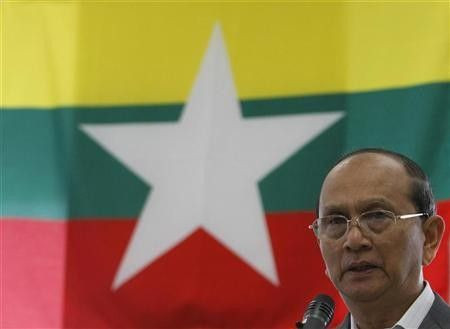Myanmar: Hardliner VP Steps Down, Raising Hopes For More Democratic Reforms

The vice president of Myanmar, a conservative hard-liner backed by the military, has resigned, suggesting that reforms in the fledgling democracy are continuing.
Former general Tin Aung Myint Oo, who once served as secretary of the State Peace and Development Council, the former military regime’s ruling body, apparently stepped down in May, with plans of becoming a monk. He was very close to former military ruler Than Shwe.
The military, which still controls one quarter of the seats in parliament, will choose a successor for Tin.
Still, the move is likely to strengthen the position of Myanmar’s reform-minded president, Thein Sein, the country’s first civilian president in more than half a century of military rule.
Sein is now considering a cabinet reshuffling, according to senior government officials with an eye toward removing more ministers who oppose democratic reforms.
“It will come soon. Those who are about to be reshuffled are known as hardliners,” an unnamed government official told Agence France Presse.
[Thein] needs to make the cabinet more vibrant and effective, and he has to remove some conservatives who are reluctant to accept his reforms, another Burmese lawmaker told Reuters.
Since Thein became president in March 2011, his government has pushed through a number of reforms, including the release of political prisoners, the permission of labor unions and relaxations on media control, that has led to the easing of sanctions by many foreign states. The most dramatic development was the parliamentary election in the spring that brought pro-democracy icon Aung San Suu Kyi into elected office.
Thein is under pressure from western and Asian investors to speed up the pace of reforms in order to attract desperately needed investments in what is still a very poor country.
However, any excitement over further democratic reforms must be viewed in the context of growing ethnic unrest among Myanmar’s ethnic minorities, including recent violence involving the Muslim Rohingya peoples in the far west Rakhine province. The crisis in Rakhine led to Thein declaring a state of emergency in the state, sending in the military to well any further disturbances.
© Copyright IBTimes 2024. All rights reserved.











